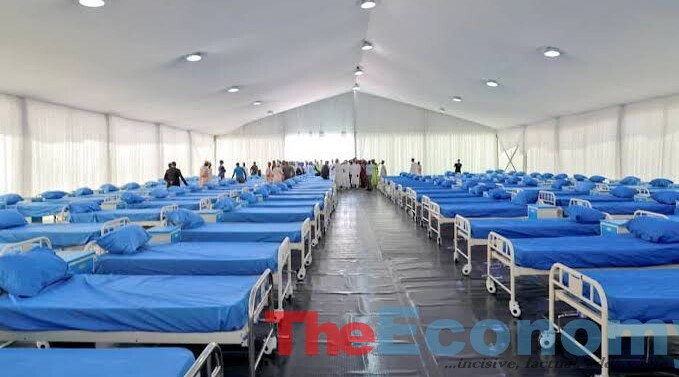Authorities in Abuja have shut two of the four isolation centres that cater for coronavirus patients in the Nigerian capital.
The COVID-19 isolation centres located inside Karu and Asokoro General Hospitals are now closed down following the reduction in the number of patients.

Only the treatment centres in Idu and THISDAY Dome will now hold COVID-19 patients in Abuja.
There has been a significant reduction in the number of daily infections across Nigeria’s 36 states and the Federal Capital Territory (FCT).
For about a month, the West African nation has been recording daily figures below 300, an indication that the country is heading for a plateau in its epidemiological curve.
Health authorities, however, warn against relaxing, as low testing is still being witnessed across the country.
“One critical issue is the number of tests being done, and yes the number of tests has actually declined,” the Director-General of Nigeria Centre for Disease Control (NCDC), Chikwe Ihekweazu, said at a Presidential TaskForce on COVID-19 briefing.
There has also been an increase in the number of patients being discharged across isolation facilities in the country.
Nigeria has recorded over 58,000 cases leading to the death of over 1,100 people. Meanwhile, about 49,000 of the infected total have fully recovered after receiving treatment.Only about 8,000 infections are still active, data from NCDC shows.
With more than 5,000 infections and 77 deaths, Abuja is the most impacted city after Lagos. A little over 4,900 persons have recovered in FCT with 509 active cases as of Friday evening.
PREMIUM TIMES reporters who visited the Karu isolation centre on Friday saw that it was under lock and key. The same scenario was seen at the isolation centre in Asokoro.
Authorities said they decided to close down both centres, leaving the ones in Idu and THIS DAY Dome, since there are now fewer patients infected from the COVID-19 virus.
The Acting Secretary, Health and Human Services Secretariat, Federal Capital Territory Administration, Mohammed Kawu, said the centres were not purposely built as COVID-19 treatment centres, hence the need to convert them to their initial purpose.
“We officially converted both centres to conventional hospitals on August 24, 2020, because the number of COVID-19 patients is tremendously low,” Kawu told PREMIUM TIMES on the phone.
The 500-bed capacity facility in Idu used to be an unoccupied railway school facility at the Abuja-Kaduna railway terminal at Idu. It was however converted to an isolation centre at the onset of COVID-19 in Nigeria.
“THIS DAY Dome also has a 300-bed capacity, which is enough to cater for patients in the Nigerian capital. Both centres were intentionally built as isolation centres,” the official said.


